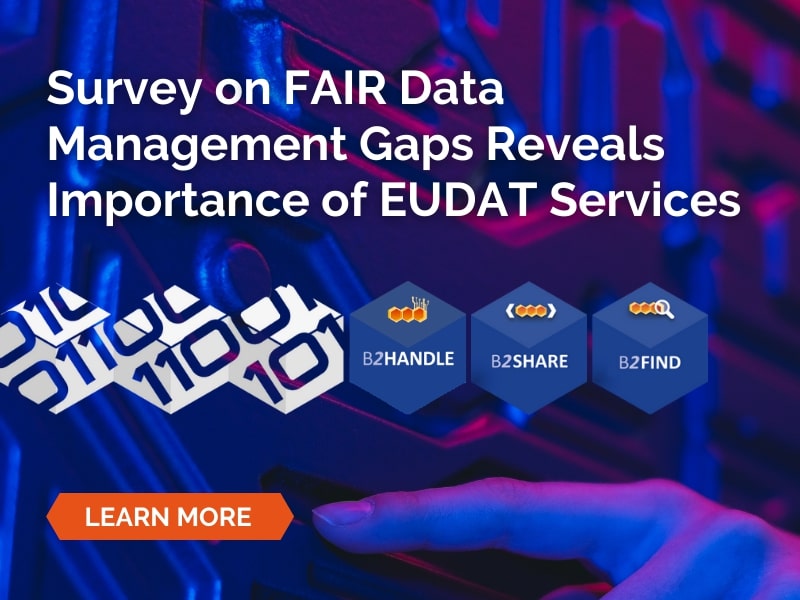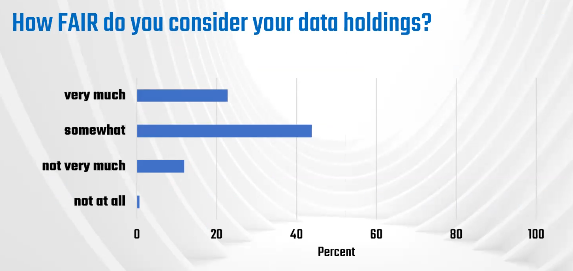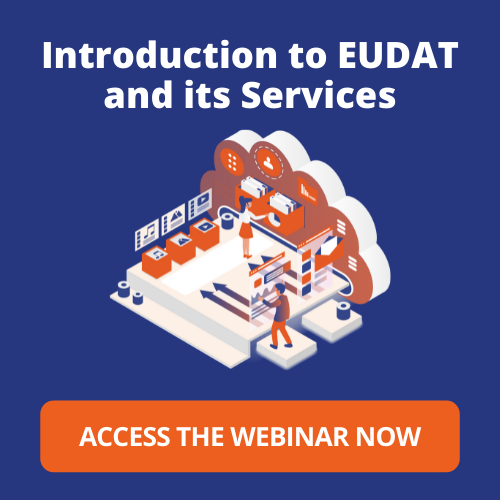
Three of EUDAT’s services have been showcased as potential solutions to solve FAIR data management challenges during a joint event organised by EOSC-Pillar and DICE last 31 January 2022.
The webinar titled, FAIR Data Management Gaps and Solutions, was opened by EUDAT CDI Secretariat User Engagement Coordinator and DICE Project Coordinator Debora Testi (CINECA) following which EOSC-Pillar’s Federica Tanlongo (GARR) presented “FAIRNess of data in EU countries - a landscape study” which highlighted a number gaps on keeping research data findable, accessible, interoperable and reusable (FAIR).
EOSC-Pillar is one of the four EOSC regional projects covering the implementation of the European Open Science Cloud in Austria, Belgium, France, Germany and Italy. As part of its mandate, it conducted a comprehensive survey which gathered inputs from at least 600 research infrastructures, e-infrastructures, universities and funding bodies. A key topic of the survey was data management and FAIR-ness.
Following the presentation of the FAIR data management gaps in the EOSC-Pillar countries, EUDAT and DICE representatives Claudia Martens (DKRZ), Themis Zamani (GRNET), and Chris Ariyo (CSC) respectively presented how B2FIND can aggregate data repositories and help increase findability, how B2HANDLE can provide persistent identifiers for research data, and how research data can be made available and reusable with B2SHARE.
EOSC-Pillar Survey Insights
Regarding research infrastructures, e-infrastructures, universities and funding bodies' familiarity with FAIR data principles, most felt they were between “familiar” or “very familiar”. Some relevant insights came out of the survey for e-infrastructures (those who manage repositories or digital infrastructures).
When it came to rating how FAIR their own data holdings were, most of the respondents were only “somewhat FAIR”.

When asked whether their e-infrastructure provides a search feature for metadata, only about half of respondents said that they have this feature fully implemented.
As for whether they provide their data catalogue in a machine-readable format, only slightly more than 40% indicated that they have it fully implemented.
Looking specifically at country trends, the following insights were highlighted:
- In Austria, while universities, research infrastructures and e-infrastructures generally show high familiarity with FAIR principles, their familiarity with EOSC is rather low with only less than 16% being part of an organisation that facilitates integration into EOSC.
- In Germany, there appears to be less familiarity with the FAIR principles with only 50% of universities being familiar with them and less than 35% with regulations in place for research data management and open data as well as for other aspects of FAIR i.e. long term availability and related repositories. On the other hand awareness of EOSC is higher with over 50% of universities indicating that EOSC will affect them and 75% expecting to benefit from it.
- In Belgium, e-infrastructures, research infrastructures and universities are familiar with FAIR but e-infrastructures have a noted lower awareness of EOSC, with particular differences based on scientific domain/community.
- In France, e-Infrastructures, research infrastructures and universities indicated high familiarity with FAIR principles but that user training needs to be offered in French more than English. It was observed that a centralised policy direction contributes to the higher awareness of FAIR and EOSC in general.
- In Italy, meanwhile the lack of centralised policy direction results in lower awareness of FAIR and readiness for it. Repositories observe concern on benefit and competitive disadvantage when sharing data (more than 35% indicated this).
The presenter, Federica Tanlongo observed, “The link between FAIR, open science and EOSC in general is not always so immediate as one would imagine.”
Looking closer at FAIR, across countries, repositories reach an average findability score of 65%.

Regarding Persistent identifiers, on average, 44% have fully implemented PIDs with 17% currently in the process of implementing them. Of the repositories that use PIDs, DOIs are the most common, followed by Handle and URN.

As for Accessibility, the majority of e-infrastructures do have accessibility policies. As for interoperability, repositories reach an average interoperability score of 65%.

Across the countries, repositories have reached an average reusability score of 57%.

Federica concluded that though the “FAIR-ness” of data seems far away, respondents do seem to be aware of it. Work towards improving it is a continuous effort requiring time and coordination with strong strategy and support from the policy level.
Interested to know about EUDAT and its services?
Watch this free 30 minute webinar,
Introduction to EUDAT and its Services

